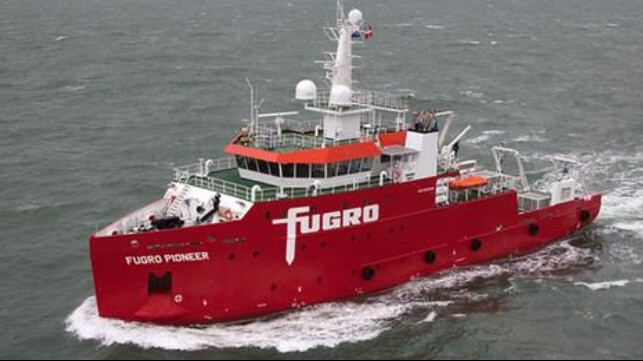Dutch Fund Research to Accelerate Methanol as a Maritime Fuel

The Dutch government is awarding funding to a series of projects including one designed to accelerate the use of methanol as a maritime fuel. A broad maritime consortium has been awarded funding to conduct research into accelerating the use of methanol as a low-carbon fuel within the shipping industry. The program also includes the implementation of pilot projects for the use of methanol.
Methanol, which can enable significant reductions in CO2 emissions compared to traditional fuels, is viewed within the international maritime sector as one of the most feasible clean fuels that will be available in the coming years for large-scale adoption by the industry. Research efforts have been proceeding on several fronts including the first demonstrations of methanol-fueled engines. Maersk became the first large shipping company to commit to the fuel announcing orders this year for a methanol-fueled feeder ship to operate in the Baltic followed by orders for large containerships that will be outfitted with dual-fuel engines capable of using methanol. Maersk has said that much remains to be developed for methanol and noted that it currently does not appear that there will be sufficient methanol supplies for its new ships to operate exclusively on the fuel.
The Dutch research program will receive approximately $27 million from the government’s Netherlands Enterprise Agency as part of a total research budget of more than $40 million including contributions by the programs’ partners. The consortium, which includes ship owners, yards, suppliers of specialist maritime equipment, and knowledge institutions, will retrofit six different vessel types to test the viability of methanol fuel systems.
The research project aims to develop clean energy technology with a high degree of flexibility and broad applications within the shipping industry, from yacht building to offshore work ships and high-powered dredgers. Royal Boskalis Westminster, a leading global services provider operating in the dredging, maritime infrastructure, and maritime services sectors, is one of the participants, as are Fugro and Royal IHC. The Netherlands Defence Academy (NLDA) is one of the academic participants focusing on developing adaptive solutions for the use of methanol. In the laboratory at NLDA, they will run tests on engines using methanol to investigate the impact on the behavior of the engines and the ship’s energy system.
“This research program looking into the use of methanol as a low-carbon fuel is another important step along the road to realizing net-zero objective,” said Peter Berdowski, CEO of Boskalis. "Alternative fuel types are the most significant driver for developing a more sustainable maritime industry and we continue to be at the forefront of initiatives exploring the emission-reduction potential presented by methanol and other clean technologies. "
Fugro which is also participating in the project as committed to converting its vessel the Fugro Pioneer to methanol operations in 2023. Built in 2014 by Damen Shipyards Galati, Fugro Pioneer uses diesel-electric propulsion the vessel is 171 feet long. The vessel is currently conducting geoscience surveys for wind farm development.
